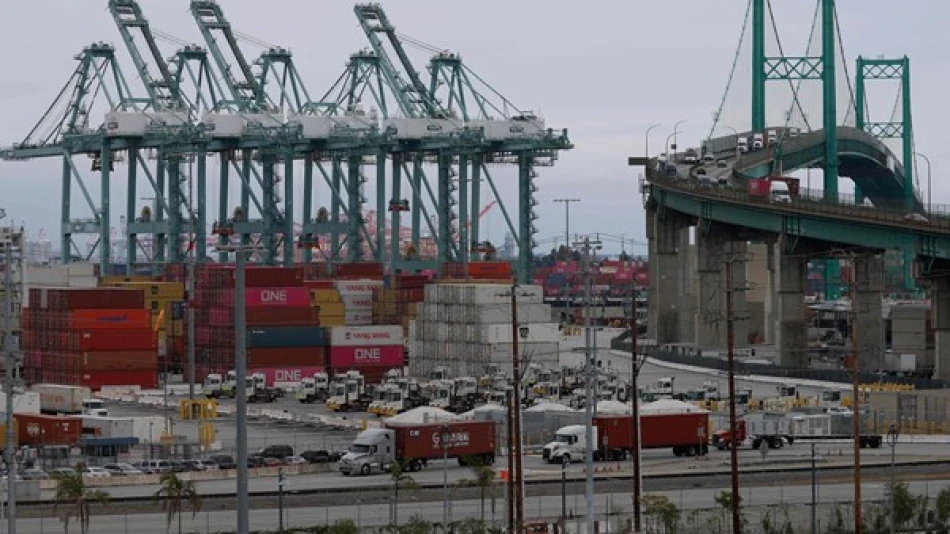
EU Readies €72 Billion Retaliation as Trump Unleashes 30% Tariffs on Allies
EU Threatens €72 Billion Retaliation as Trump Escalates Trade War with 30% Tariffs
The European Union is preparing to strike back against President Donald Trump's latest trade offensive, with EU Trade Commissioner Maroš Šefčovič announcing potential retaliatory tariffs on $84 billion worth of goods. The warning comes as Trump declared a sweeping 30% tariff on EU and Mexican imports starting August 1, targeting America's two largest trading partners in a move that could reshape global commerce.
Trump's Bold Gambit: 30% Tariffs Hit Major Partners
Trump's Saturday announcement marks a significant escalation in his administration's trade strategy, imposing punitive 30% tariffs on the European Union and Mexico—ironically, the United States' closest economic allies. The decision stems from failed negotiations, with Trump citing the inability to reach satisfactory trade agreements as justification for the aggressive measures.
This represents one of the highest tariff rates imposed by a US president in decades, surpassing even the controversial China trade war tariffs that peaked around 25% during Trump's first term. The timing—just months into his presidency—signals an administration willing to prioritize domestic manufacturing over diplomatic relationships.
Europe's Strategic Response: Measured but Firm
Commissioner Šefčovič's response reveals a European Union caught between disappointment and determination. His statement that the EU "never abandons making a genuine effort" underscores Brussels' preference for negotiated solutions, even as it prepares for economic warfare.
The €72 billion retaliation package would likely target American agricultural products, technology goods, and luxury items—a playbook the EU has used effectively in previous trade disputes. This approach mirrors the EU's successful strategy during the 2018-2019 trade tensions, when targeted tariffs on bourbon, motorcycles, and agricultural products pressured specific US constituencies.
Market Implications: Winners and Losers Emerge
For investors, this trade escalation creates both opportunities and risks. European exporters face immediate pressure, particularly in automotive, machinery, and luxury goods sectors that depend heavily on US markets. Conversely, domestic US manufacturers may benefit from reduced competition, though they'll face higher input costs from European suppliers.
Currency markets are already reacting, with the euro weakening against the dollar as traders price in reduced trans-Atlantic trade flows. Commodity prices, particularly for agricultural products, face volatility as trade routes shift toward alternative markets.
Historical Context: Echoes of Past Trade Wars
This confrontation recalls the Smoot-Hawley Tariff Act of 1930, which contributed to the Great Depression's severity by triggering global retaliation. However, today's interconnected economy means the stakes are arguably higher, with complex supply chains spanning multiple continents.
The EU's measured response contrasts sharply with China's approach during the previous trade war, where Beijing often matched US tariffs dollar-for-dollar. Europe's emphasis on negotiation while preparing retaliation suggests a more sophisticated strategy aimed at minimizing economic damage while maintaining pressure for resolution.
The Road Ahead: Negotiation or Escalation
Despite the harsh rhetoric, both sides appear to be leaving room for diplomatic resolution. Šefčovič's emphasis on being "close to reaching an agreement" suggests ongoing back-channel communications, while Trump's specific August 1 deadline provides a clear timeline for potential compromise.
The ultimate outcome will likely depend on domestic political pressures in both regions. Trump faces potential backlash from US consumers experiencing higher prices, while European leaders must balance economic interests with the need to appear strong against American pressure.
This trade confrontation represents more than economic policy—it's a test of the post-war international order and whether negotiated multilateralism can survive in an era of unilateral action.
Most Viewed News

 Layla Al Mansoori
Layla Al Mansoori






